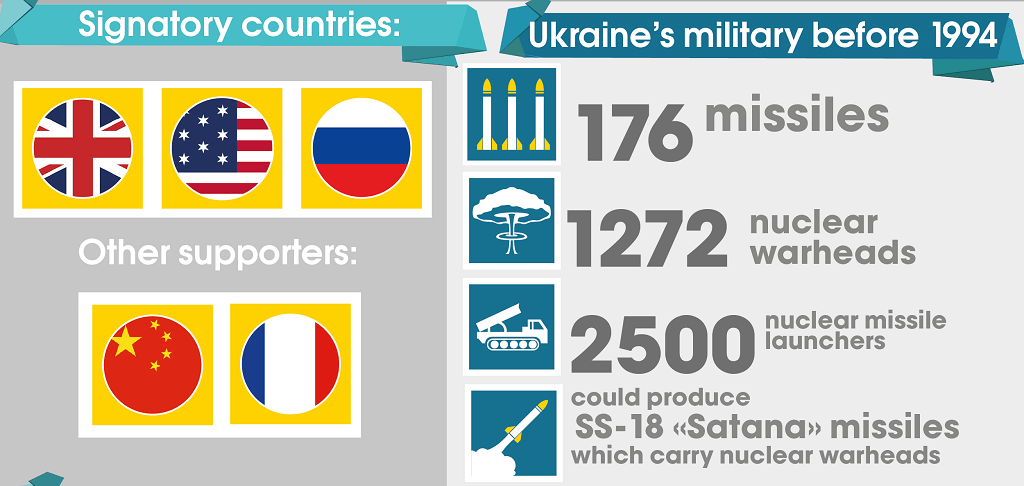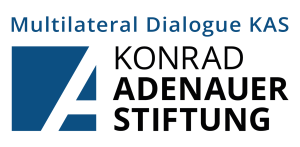On 5 December 1994, in Budapest, Hungary, Russia, the US, the UK and Ukraine signed the memorandum on security assurances in connection with Ukraine’s accession to the Treaty on Non-Proliferation of Nuclear Weapons (NPT) as a non-nuclear-weapon state. In 1991, after the dissolution of the USSR, Ukraine possessed the world's third largest nuclear arsenal after Russia and the US. The proposal that only the Russian Federation should succeed the USSR as a nuclear state gathered significant global support (Belarus and Kazakhstan also possessed parts of the Soviet nuclear arsenal). However, in 1992, Ukraine expressed concerns about its future territorial integrity and security, thus requiring a high-level document that would guarantee its inviolability. The 1994 memorandum provided assurances of respect to the independence, sovereignty, and existing borders of Ukraine; promised to refrain from use of force or the threat of use of force as well as from economic coercion; and re-committed (as stipulated in the NPT) not to use nuclear weapons of threat thereof against Ukraine.
Why It Matters
Ukraine’s biggest fear – Russia’s border revisionism – became reality in 2014 with the annexation of Crimea and occupation of Donbas. In April and November 2021 Russian forces were concentrated near the border with Ukraine. The US and UK have been criticised for not ensuring commitments under the Budapest Memorandum and violation of it.
Further Materials:
https://treaties.un.org/Pages/showDetails.aspx?objid=0800000280401fbb





